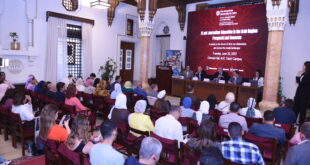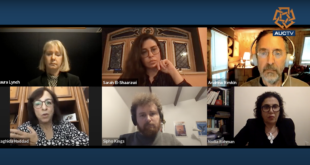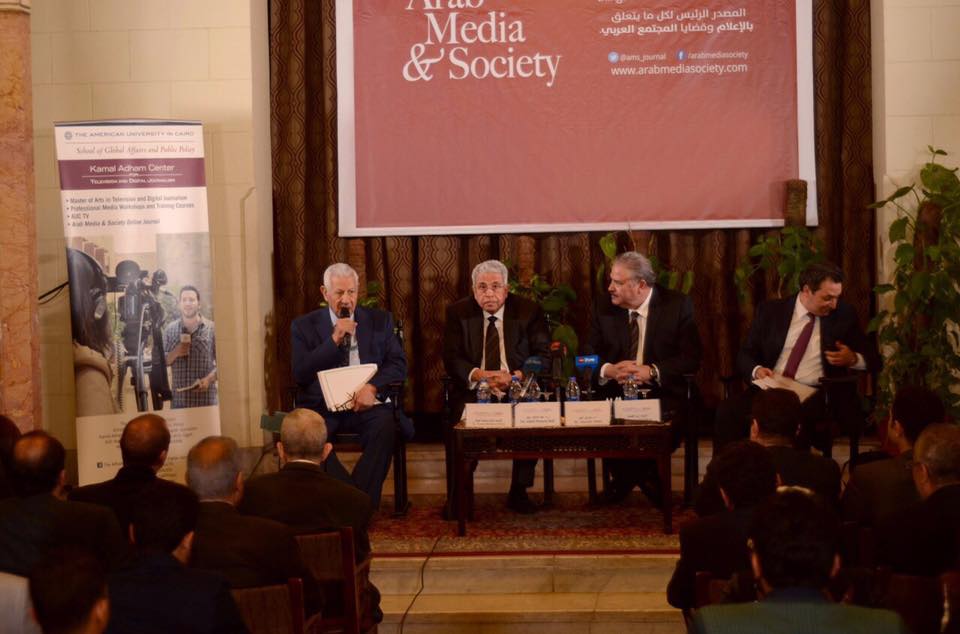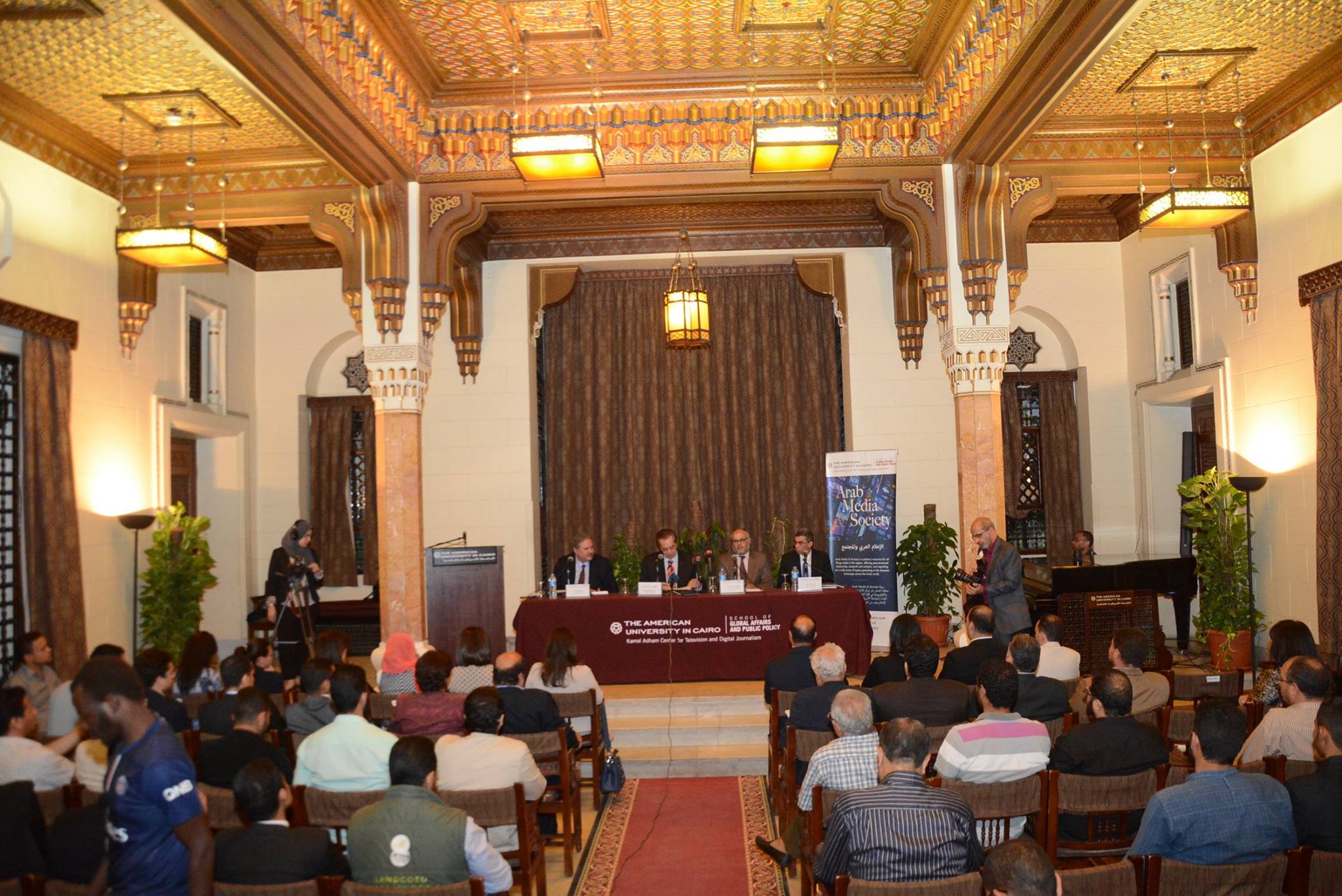The roundtable "Professional Ethics, Media Legislation and Freedom of Expression in Lebanon," held in Beirut March 1-2, 2002, debated a proposed code of ethics for journalists in Lebanon and around the Arab world. The event was sponsored by the Institute for Professional Journalists at Lebanese American University, working in cooperation with such organizations as the Vienna-based International Press Institute and UNESCO's Programme for Freedom of Expression, Democracy and Peace.
This was a followup session to a seminar held in May 2001, at which representatives of these organizations, along with both local and foreign journalists, drew up a set of "Proposed Guidelines for Good Journalistic Practice" in four general categories: sources, gifts/junkets/benefits, accuracy/fairness, and freedom/privacy/relevance.
According to Magda Abu-Fadil, director of the Institute for Professional Journalists and director of publications at LAU, the proposed guidelines draw on a wide variety of sources, including codes of ethics from different media organizations and recommendations from journalists' associations around the world.
This meeting was an opportunity to reconvene many of the participants from the first seminar, joined by both local and foreign media practitioners, to discuss this set of guidelines and to get reaction from local journalists on their experiences and how the guidelines might be implemented on the ground.
One major question that was raised over the course of the two-day event is how to implement such practices—if it is the responsibility of the individual journalists and their media organizations, or if a law should be passed, at the level or journalists' unions or higher up, stipulating any or all of the recommended practices to be not guidelines but requirements.
Some of the most heated debate of the two days came in discussion of gifts, junkets, and benefits—which in the proposed guidelines include such items as not accepting money, paid trips, or bribes from sources; disclose any payments made or received; and not be influenced by commercial, political, or other vested interests. Several participants felt the inclusion of these items was an insult to journalists, as it implied that journalists might be accustomed to such practices—and on the other hand, some participants argued that the source of such problems lies not with journalists themselves but with an entire system in which people, be they government officials or others, can be bribed. As Jawad Adra, managing partner in Lebanon's Information International, put it, "How can we demand of journalists what isn't demanded of officials?" On the same panel, As-Safir newspaper's managing editor Faysal Salman suggested that some terms of the proposed code of ethics might not be relevant in this context until "on the ground" issues, such as minimum standards for journalists' salaries, are discussed.
Although the sessions included formal presentations by the speakers, much room was left for debate and for local journalists to discuss the issues that concern them most. For example, the question of membership in local journalists' unions and other professional organizations was raised on several occasions by younger journalists who said they had a hard time even gaining membership to what should be professional organizations designed to benefit them.
One panel dealt with questions relating to sources; for example, as stated in the proposed guidelines, clearly identifying pictures, video, and reports; protecting confidential sources of information; cross-checking and substantiating facts. Discussants included Octavia Nasr, CNN senior international editor, who outlined how her organization deals with these issues, through CNN's journalists themselves and their reference book on ethics, to the senior management and legal department. On the question of press freedom, An-Nahar newspaper's Edmond Saab spoke about the need not only for freedom of the press but also that the press by "free to be balanced," that journalists "give the whole picture with judicious restraint" and focus not on ego and power but on accountability, listening to feedback from readers and viewers, and accepting criticism. The goal, he said, is to "give the story the power to empower public opinion. Media are leaders of their society, and leading is a big responsibility." Stephen Quinn of Zayed University discussed computer-assisted reporting and how journalists can use tools such as the Internet to enhance their access to information; he provided participants with a list of websites and search engines, designed with journalists in mind, which can serve as powerful research tools. He emphasized, though, that technology is only a tool, and that bad or inaccurate source material equals bad journalism. Quinn also stressed that ethical guidelines for journalists is something that individuals and organizations should think through and plan out well in advance, not just as questions or situations arise. "Ethics is the key issue in the knowledge age," he said, "and is more vital than ever in an age of uncertainty."
Nabil Dajani, in a session on accuracy and fairness, observed that basic tenets of accuracy alone are insufficient, that "journalists must be trained to be critical and analyze what they observe, and understand the cultural context. The five W's might not be the real questions." He said that western media, for example, tends to assume that western culture is universal, which sometimes leads to contradictions and inaccuracies when they report on other parts of the world. Stefania Bork of the International Federation of Journalists, which consists of 140 member organizations in 100 countries, spoke of the need for journalists and organizations to develop their own ethical practices rather than having these enforced on them by law, and of the need for basic conditions of press freedom before ethical standards can be discussed and implemented.
This was not a conference intended to try to implement or enforce this proposed code of ethics; rather, it was an opportunity for local journalists, representatives of local and international journalists' organizations, and journalism educators to discuss how the code might play out on the ground. The result was some participants calling for the immediate implementation of the guidelines, others proposing changes; some calling for formal stipulations on ethics, others calling for journalists and media organizations themselves to live up to such standards. Whatever the eventual outcome may be, opening up a forum for such debate is indeed a step in a positive direction.
 Arab Media & Society The Arab Media Hub
Arab Media & Society The Arab Media Hub




